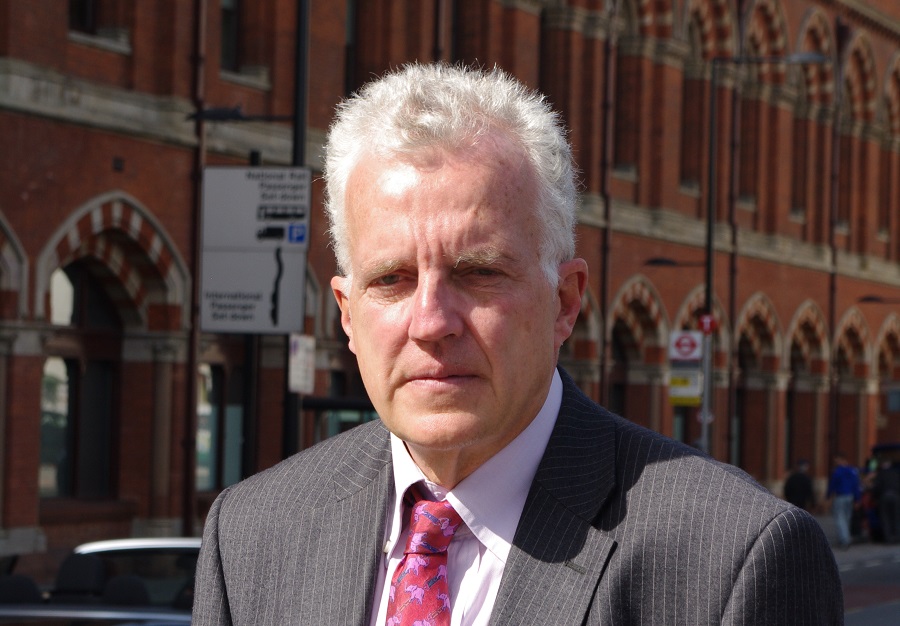Today’s above inflation fare rises for rail passengers are not the only bit of bad news on the horizon. Rail travellers also face further overcrowding as the numbers of people using the trains continue to rise but there is no room for any more services on many parts of the network. In other words, as more travellers cram onto the same number of trains, there will be more standing passengers and, worse, trains that depart leaving people unable to get on them fuming on the platform.
The railways are indeed booming. The train operators association has just announced that more people used the network last year than at virtually any time since the railways were nationalised in 1948 and that was despite the July London bombings which put a lot of shoppers and tourists off from taking the railway. In the past decade, passenger numbers have increased by 40 per cent and the government predicts there will be a rise of almost a third in the next ten years. There are plenty of new trains and recently performance on the railways has improved, with fewer delays and cancellations.
In most industries, such a fantastic take up of their goods and services would lead to increased production in the search for ever higher profits. The railways, however, are different. The problem is that they need to be subsidised and the golden rule of railway economics is that the more people use them, the more support from taxpayers is needed. The reason is simple. Apart from a few very heavily used lines, most train services require a subsidy. Even if train services on a particular route generate enough ticket income to pay for the day to day operations, they virtually never make enough profit to pay for the investment in the track and rolling stock. That is why tram schemes have been cut recently and there are threats to some train services.
The railway companies may be able to make more profit by squeezing a few more people onto the trains but once they need to invest in new rolling stock or extra tracks, it is the taxpayer who has to cough up. The only profitable passenger rail network in the world is in Japan and that’s because the country is very densely populated and the train service has developed a reputation for reliability and speed that ensures people continue using rail rather than their cars.
Railways are an expensive business as they need heavy levels of investment and in the UK that situation has been made worse by privatisation. Whereas British Rail received subsidies, in today’s prices, of a maximum of £1-2bn at the most each year, this year the railways will get around £6bn of taxpayers money, far more than ever before.
The government claims this is to make up the backlog of underinvestment left by British Rail but don’t be fooled. The real reason is the way that the industry was privatised and mismanaged after it was broken up and sold by the Tories nearly ten years ago. The private operators found that far from being able to cut costs, they had to take on extra staff because of increased passenger numbers and because British Rail had been far more efficient than the government had realised. Moreover, since the new private companies had to pay dividends to their shareholders, whereas British Rail simply reinvested its profits, costs simply kept on rising.
Far from patching the railway back up again, Labour has tinkered about with the structure first creating the Strategic Rail Authority and then abolishing it. Ministers did, at least, abolish Railtrack and effectively renationalise the infrastructure by creating Network Rail, a company which has no shareholders and is effectively state owned, which then, in turn, brought back in house maintenance that had been privatised. This has saved some money but nevertheless Network Rail spends far more than British Rail ever did because the industry has been broken up in a way that makes it very difficult to keep a lid on costs.
That is why rail passengers and, especially, commuters are in for a rough ride over the next few years. The Treasury, which instigated the privatisation in the first place, is now desperate to stop the railways from haemorrhaging money. Therefore, the mandarins are insisting that all new franchises come with as little subsidy as possible – or even with large premium payments to the Department for Transport. Commuters in Kent, for example, are going to be paying fares which rise by 3 per cent above the rate of inflation every year once the new franchise operator starts in April. Moreover, the Department for Transport is also looking for cuts to services in several areas where trains are less well used, although these are likely to be very strongly resisted by passenger groups and local politicians.
Watch out, therefore, for something of a commuters’ revolt. Alistair Darling, the low-key transport secretary, has managed to keep the railways off the political agenda in the past three years but with a new lively and well-informed Tory shadow in Chris Grayling, he is going to face a much bumpier ride unless he can convince passengers that things are going to get better. And so far it looks as if they will not.
